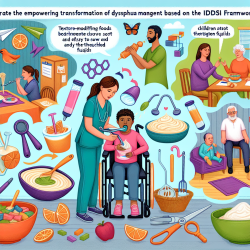Introduction
Clinical ethics is a critical component of healthcare that focuses on the ethical concerns arising in clinical practice. The research article "Clinical Ethics Revisited: Responses" by Benatar et al. highlights several areas where clinical ethics can be improved to enhance patient care and outcomes. This blog will explore how practitioners, especially those involved in online therapy services like TinyEYE, can implement these findings to improve their skills and deliver better outcomes for children.
Understanding the Shortcomings
The research identifies several shortcomings in the current state of clinical ethics, including inadequate role modeling in medical schools, insufficient mechanisms for monitoring institutional ethics, and a deteriorating doctor-patient relationship. These issues are compounded by the commercialization of healthcare, which has led to a loss of trust in healthcare professionals and a focus on autonomy over justice in health care.
Implementing Improvements
To address these issues, practitioners can take several steps:
- Emphasize Role Modeling: Practitioners should strive to be role models in ethical behavior, demonstrating a commitment to patient-centered care and ethical decision-making.
- Enhance Communication Skills: Effective communication is essential for building trust and understanding between practitioners and patients. Practitioners should focus on improving their communication skills to better understand and address patient concerns.
- Focus on Justice: Practitioners should prioritize justice in their practice, ensuring that all patients receive fair and equitable care. This includes being mindful of social determinants of health and advocating for policies that promote health equity.
- Engage in Continuous Education: Staying informed about the latest developments in clinical ethics and participating in ongoing education can help practitioners stay current and improve their ethical decision-making skills.
Encouraging Further Research
While implementing these strategies can lead to improvements, further research is needed to continue advancing the field of clinical ethics. Practitioners are encouraged to engage in research that explores the impact of clinical ethics on patient outcomes, particularly in the context of online therapy for children. By contributing to the body of knowledge in this area, practitioners can help shape the future of clinical ethics and improve outcomes for all patients.
Conclusion
Clinical ethics plays a vital role in ensuring that healthcare practitioners provide ethical and patient-centered care. By addressing the shortcomings identified in the research and implementing the suggested improvements, practitioners can enhance their skills and deliver better outcomes for children in online therapy settings. For those interested in exploring this topic further, the original research paper, Clinical ethics revisited: responses, provides valuable insights and guidance.










